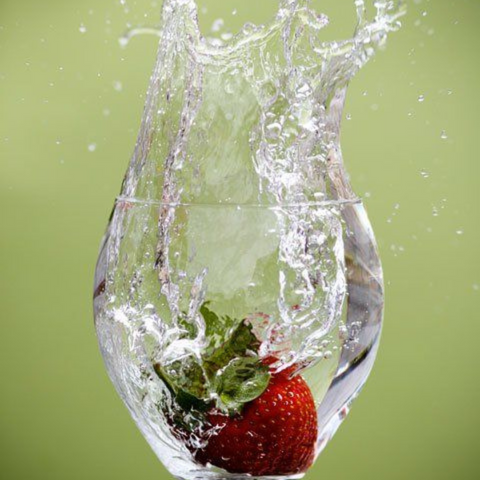
Drinks for Smooth Bowel Movement
Irregular bowel movements can disrupt your sense of well-being. They leave you uncomfortable and tired and may even cause bloating. This common issue affects about 16% of adults. Older adults experience it more frequently. While occasional episodes are manageable, persistent problems can significantly impact daily life.
There are many remedies to relieve this issue – eat the right foods, increase fiber intake, and stay active. But today, we'll focus on some of the best drinks recommended by dieticians to provide relief when you really need to go.
Causes
Several factors can slow digestion and lead to discomfort, including:
- Low Fiber Intake: A diet lacking fiber can make stools harder to pass.
- Inadequate Hydration: Dehydration leads to firmer stools and less regularity.
- Limited Physical Activity: Lack of movement reduces digestive efficiency.
- Stress or Routine Changes: Irregular schedules impact your digestive rhythm.
- Certain Medications: Pain relievers and antacids can affect bowel regularity.
Signs of Irregular Bowel Movements
- Fewer than three bowel movements per week
- Firm stools that are hard to pass
- Discomfort or difficulty during bowel movements
- A feeling of incomplete emptying after a bowel movement
Effective Drinks for Digestive Relief
-
Water
Water is one of the most effective ways to improve digestion. Drinking enough water softens stools and promotes regular bowel movements. Aim for 1.5 to 2 liters daily. Mineral water with magnesium can also enhance digestion. -
Lemon Water
A glass of warm lemon water gently promotes digestion. The citric acid in lemons draws water into the intestines, softening stools and easing their passage. Enjoy it in the morning or before bed for best results. -
Chia Fresca
This drink combines chia seeds, water, and a touch of lemon or lime juice. Chia seeds absorb water, forming a gel-like consistency that aids digestion. It's a flavorful and fiber-rich choice to include in your routine. -
Coffee
Coffee doesn't just wake you up; it can also stimulate digestion. It activates the gastrocolic reflex, signaling your colon to work more efficiently. Decaf coffee works similarly and is suitable for those sensitive to caffeine. -
Fresh Fruit Juices
Natural juices like apple, pear, or apricot contain sugars like sorbitol and fructose, which draw water into the intestines. This softens stools and encourages regularity, providing a soothing option for digestive ease. -
Prune Juice
Prune juice is a trusted remedy for bowel health. Its natural sorbitol content acts as a gentle laxative, promoting smoother bowel movements. A small glass often provides noticeable relief. -
Aloe Vera Juice
Aloe vera juice contains compounds that aid digestive health. While not for everyday use, it can alleviate occasional discomfort. Use it sparingly and consult a healthcare professional for long-term use. -
Ginger Tea
Ginger tea supports digestion and soothes the stomach. Fresh ginger stimulates the digestive system, encouraging food to move through the gut more efficiently. It's a warming, aromatic choice for relief. -
Black or Green Tea
These teas stimulate digestion due to their natural caffeine content. They also contain bioactive compounds that benefit gut health, making them a useful addition to your routine.
Tips to Prevent Digestive Discomfort
- Eat at Regular Times: Consistent meals help maintain a healthy digestive rhythm.
- Respond Promptly: Listen to your body and avoid delaying bathroom visits.
- Manage Stress: Activities like meditation or yoga can improve overall digestive health.
- Stay Hydrated: Drink plenty of water and include water-rich foods like cucumbers and melons in your diet.
When to Seek Medical Advice
Consult a doctor if you experience:
- Blood in your stool
- Persistent stomach discomfort
- Unexplained weight loss
- Long-term fatigue
Hydration and Digestive Health
About 75% of stool content is water. Proper hydration keeps stools soft and easy to pass. Dehydration causes the colon to absorb more water, which makes the stools firmer. Drinking water in the morning can stimulate natural bowel movements. Warm water, in particular, relaxes intestinal muscles and promotes smoother digestion.
Fiber plays a complementary role as it absorbs water to create a gel-like texture – it softens stools and keeps their movement through the intestines. Beverages like coffee can also stimulate bowel activity but may also cause dehydration. To avoid mixed effects, balance caffeinated drinks with plenty of plain water.
Nutri Intact brings you the best of nature with our rich and exotic selection of nuts, spices, edible oils, and more. We preserve nature's goodness so you can enjoy wholesome food in your everyday meals. The best way to appreciate our quality is to try it for yourself. Enjoy the earthy aroma while cooking, feel the improvements in your gut health, and experience the balance that true soul food provides.
We are proud to be an FSSAI-licensed brand (Lic. No: 11224333002597).




